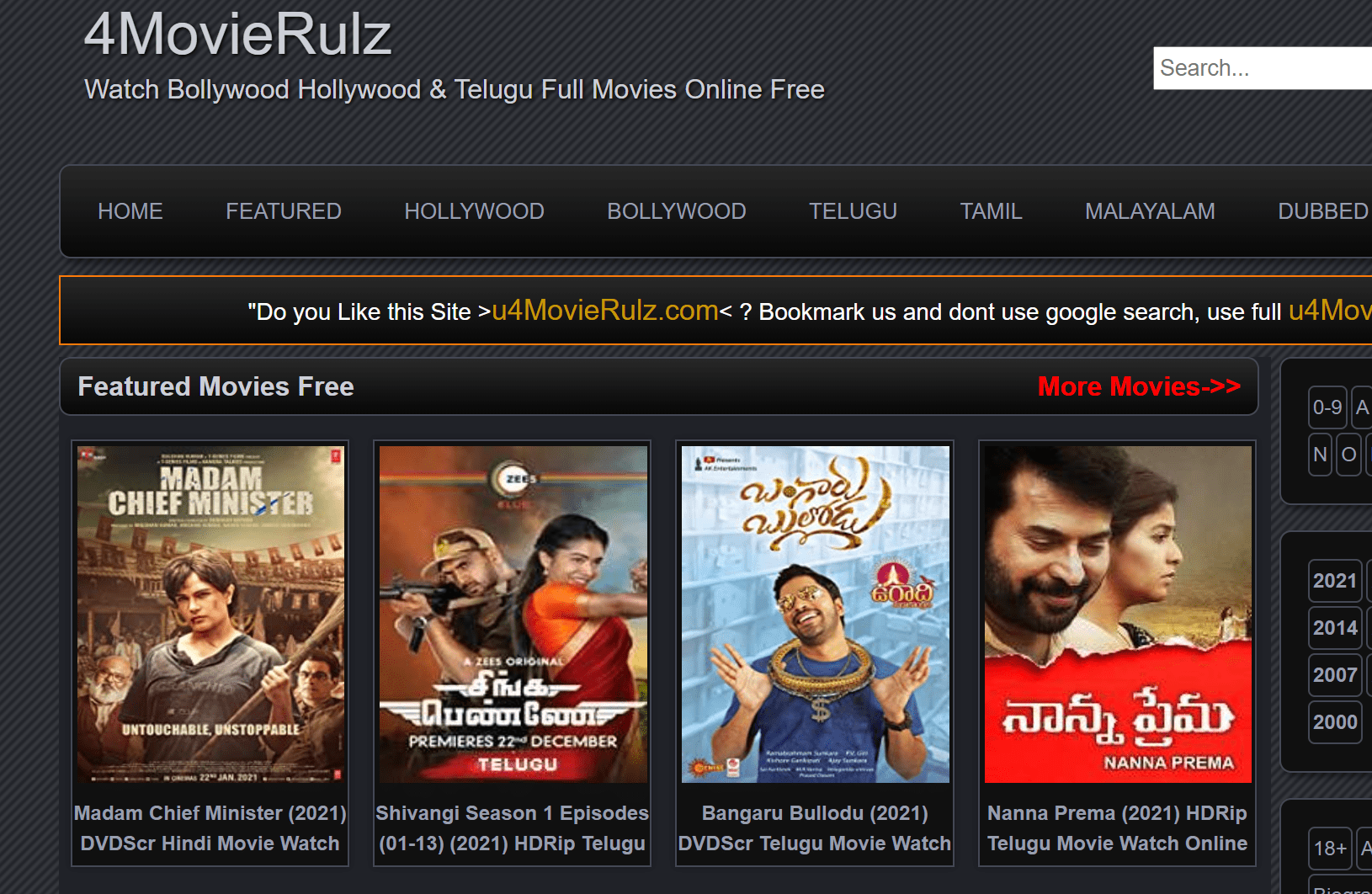Is the allure of instant entertainment, readily available at your fingertips, a modern-day siren song? The proliferation of platforms offering seemingly unlimited access to movies and television shows has fundamentally reshaped how we consume media, yet the ethical and legal ramifications of this shift remain a murky landscape, particularly in the context of copyright infringement.
The digital age has bestowed upon us a wealth of choices, transforming the way we interact with entertainment. Streaming services like Netflix, with their vast libraries of content accessible on a multitude of devices, have become ubiquitous. Concurrently, the rise of less scrupulous entities, often operating in the shadows of the internet, poses a significant challenge to the established entertainment industry. Platforms that facilitate the unauthorized distribution of copyrighted material, like the notorious Movierulz, have become both a symptom and a catalyst of this evolving dynamic. The promise of free access to the latest releases is undeniably tempting, but it comes at a considerable cost.
These platforms, which often masquerade as convenient sources of entertainment, are in reality, engines of piracy. They thrive on the unauthorized distribution of copyrighted content, depriving creators, studios, and legitimate distributors of the revenue they rightfully deserve. This widespread piracy undermines the very foundations of the entertainment industry, threatening the production of future content and the livelihoods of countless individuals who contribute to bringing stories to life on the big and small screens.
In the realm of Indian cinema, the issue of piracy is particularly acute. India's film industry, churning out over 1,800 films annually in various languages, is a global powerhouse. From the vibrant narratives of Bollywood to the regional cinemas of Telugu, Tamil, Kannada, and Malayalam, Indian cinema boasts a rich tapestry of storytelling, cultural expression, and artistic endeavor. The immense popularity of these films, however, makes them prime targets for piracy. The immediate availability of pirated copies, often appearing online soon after theatrical releases, cuts directly into the revenue streams of filmmakers and distributors, hindering their ability to invest in future projects. This not only affects the financial health of the industry but also curtails its ability to innovate and experiment with new creative ventures.The very ecosystem that nurtures creativity and cultural expression is at risk when piracy prevails.
The problem of movie piracy is multi-faceted, encompassing technological, economic, and social factors. The ease of access to high-speed internet, the proliferation of devices capable of streaming content, and the allure of "free" entertainment have all contributed to the widespread prevalence of piracy. Additionally, the complexity of copyright laws and the challenges of enforcing them across international borders further complicate the matter. Despite the inherent issues, it is important to acknowledge the constant development of strategies to combat piracy, including the establishment of legal streaming services, the use of advanced watermarking technologies, and collaborative efforts between the film industry, internet service providers, and law enforcement agencies.
The ethical considerations of consuming pirated content are crucial. While the appeal of free entertainment is undeniable, the act of downloading or streaming copyrighted material without authorization is a form of theft. It is an act that deprives creators and rights holders of their rightful compensation and perpetuates a system that devalues artistic expression and intellectual property. Considering these ethical implications is an essential component of a responsible digital citizenship.
The emergence of platforms like Movierulz, which provide unauthorized access to movies in various languages, including Hindi, English, Tamil, Telugu, Kannada, Marathi, and Punjabi, underscores the global nature of this problem. The availability of pirated content across different linguistic and cultural boundaries further complicates efforts to combat piracy. The demand for content in multiple languages makes it important to consider the broad scope of this issue, which highlights the need for solutions that address the unique challenges faced by the Indian film industry.
Legitimate streaming services like Netflix and Zee5 offer a viable alternative to piracy. These platforms provide access to a vast library of movies and television shows, including the latest releases, at a reasonable cost. The convenience and quality of these services, coupled with the ethical considerations of supporting creators and protecting intellectual property, make them a compelling choice. Netflix provides users with the ability to stream content seamlessly to a wide array of devices, and Zee5 provides its customers with a specific focus on Indian content. These legal options enable audiences to enjoy their favorite entertainment while contributing to the sustainability of the film industry.
Furthermore, staying informed about new movie releases, trailers, and reviews can be a positive way to keep up with the latest happenings in the world of entertainment. Websites like Filmibeat provide timely updates on film release dates, trailers, and news. By actively seeking out these resources, audiences can stay connected with the film industry and make informed decisions about the content they consume. This approach helps develop a conscious approach to consuming content, providing support to the industry and the creators who are working diligently to create engaging movies.
For those seeking legal and convenient access to Telugu movies, Zee5 stands out as a leading platform. They offer a curated selection of movies, including the latest releases, allowing viewers to enjoy their favorite films anytime, anywhere. Similarly, JioCinema has emerged as a major streaming platform in India, offering a vast library of movies and TV shows in multiple languages. Exploring these legal alternatives is a great way to support the industry and contribute to the ethical consumption of media content.
The battle against movie piracy is an ongoing one, and it requires a concerted effort from various stakeholders. From individual viewers making conscious choices to support legal platforms, to the film industry actively implementing anti-piracy measures, there are many ways to contribute to this cause. Raising awareness about the detrimental effects of piracy and promoting ethical consumption habits will be critical in shaping the future of entertainment. Supporting the legal means of content distribution ensures that film production continues to flourish and that audiences can continue to enjoy the vast range of movies and television shows that enrich our lives.
The impact of platforms like Movierulz is more than just financial; it also degrades the value of artistic work. By providing unauthorized access to movies, these websites diminish the respect for intellectual property and undermine the efforts of those involved in the production of the film. The practice of "leaking" movies shortly after their official release, the way these sites are frequently operating, shows a disregard for the hard work and resources that go into making a film. This approach negatively impacts not only the filmmakers and actors but also the many people involved in the entire production process.
In the context of the digital landscape, it is imperative to be vigilant and informed. It is important to recognize the difference between legal and illegal content sources and always prioritize the ethical consumption of media. This includes opting for legitimate streaming services, buying or renting movies from authorized platforms, and supporting the efforts of the film industry to combat piracy. With knowledge of the legal and ethical implications, viewers can shape the way that they engage with media and help protect the future of entertainment. This conscious effort is a crucial step toward a more sustainable and ethical digital landscape.
As technology continues to evolve and content consumption habits shift, the fight against piracy remains critical. A collaborative and comprehensive strategy, involving individual consumers, industry stakeholders, and legal authorities, is necessary to protect the integrity of the film industry and uphold the value of creativity and innovation. By embracing legal alternatives and supporting the creation of original content, viewers can play a significant role in ensuring a future in which storytelling can flourish and enrich our world.
The information presented within the context of this article is for informational purposes only and should not be interpreted as an endorsement of illegal activities or the use of any platform facilitating the unauthorized distribution of copyrighted content. We strongly encourage the support of legitimate streaming services and authorized distributors in order to protect the rights of content creators and maintain the vitality of the entertainment industry. The availability of content and its distribution are subject to applicable laws and regulations.


